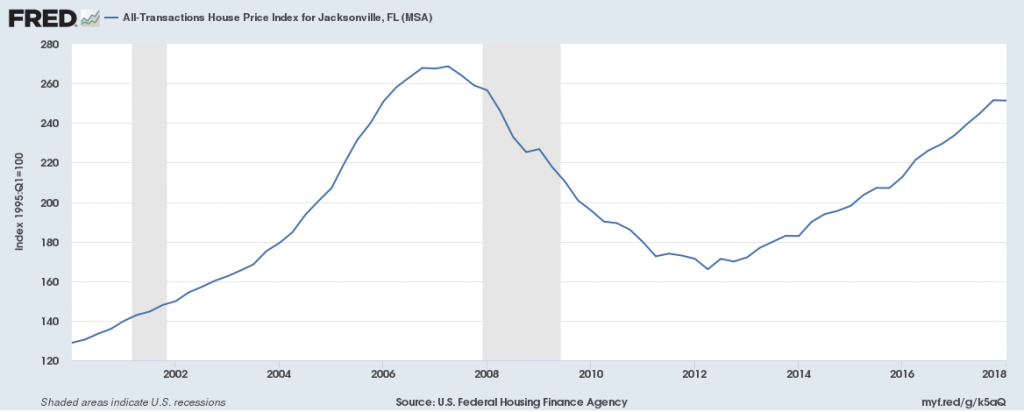Gross Domestic Product
Real GDP (a measure of economic growth) has been increasing since 2011 from the most recent low of $725 billion. It has been growing since then and is at a high of $840 billion in 2017, exceeding pre-recession levels.
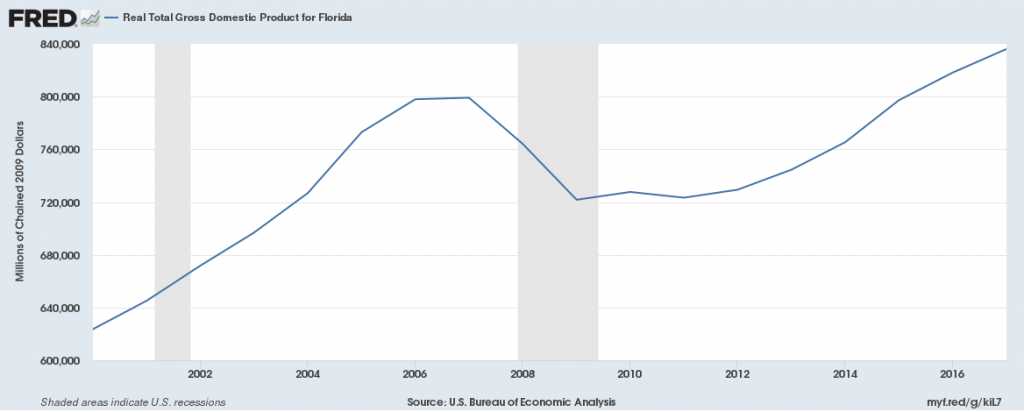
Jobs
Private-sector employers have added 1,600,000 jobs since 2010, the national low point for private-sector employment. From 2017 to 2018 the private sector has added approximately 100,000 net new jobs, putting it above the pre-recession high of 6,900,000 total jobs. Average hourly wages in the private sector have been slowly increasing since 2011, going from $21.50/hr to $24/hr in 2018.
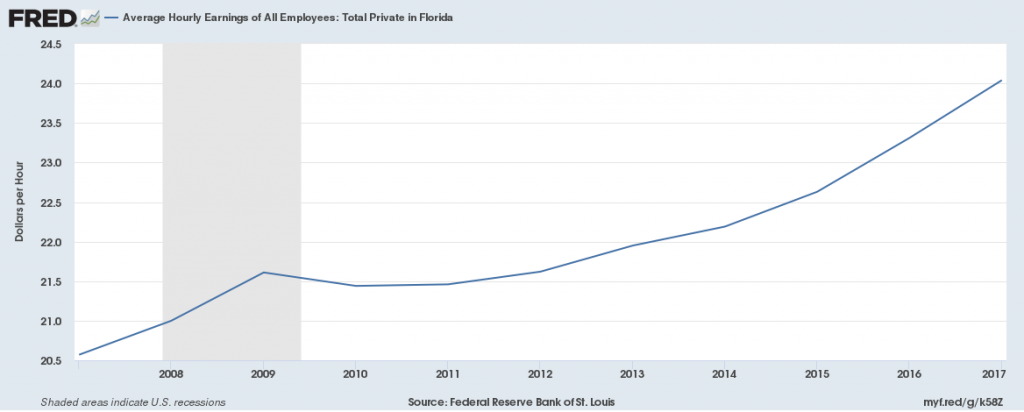
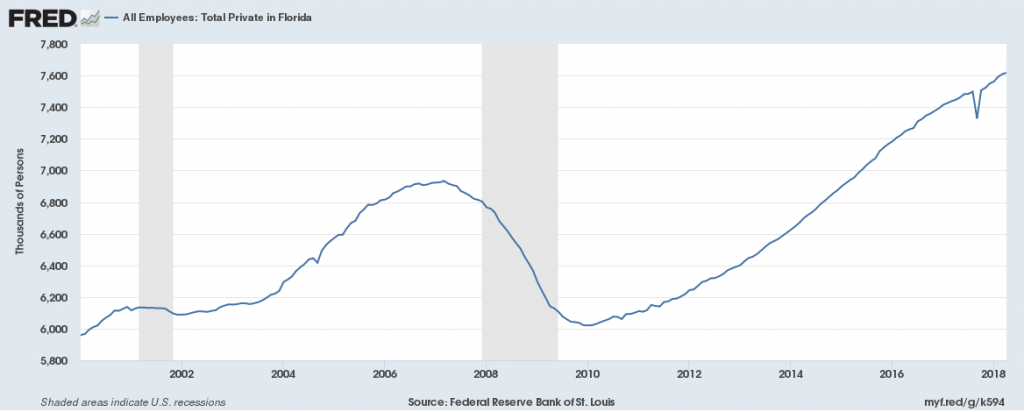
Manufacturing employment has been declining since 2000, especially during the 2008 recession, but has been growing since then. There were 378,000 jobs in this sector in 2018, down from 480,000 in 2001 and still below pre-recession levels of 420,000. Average hourly wages of production employees have been increasing since 2000, going from approximately $12.50/hr in 2000 to $21.50/hr in 2018.
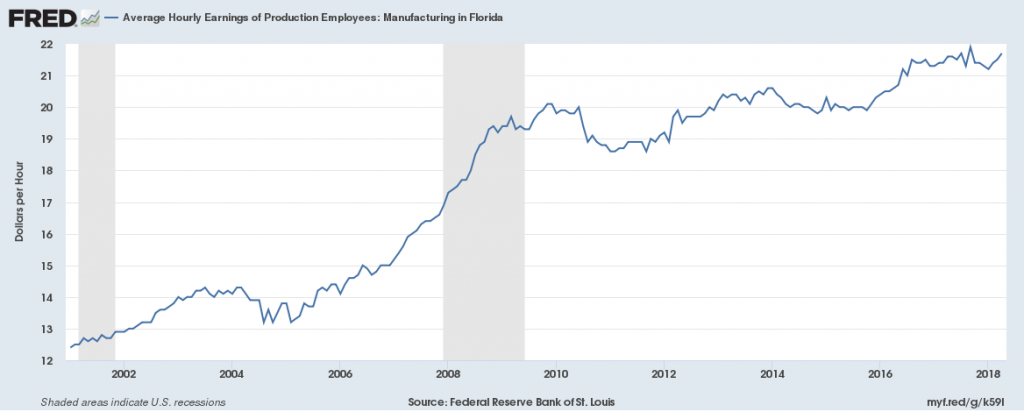
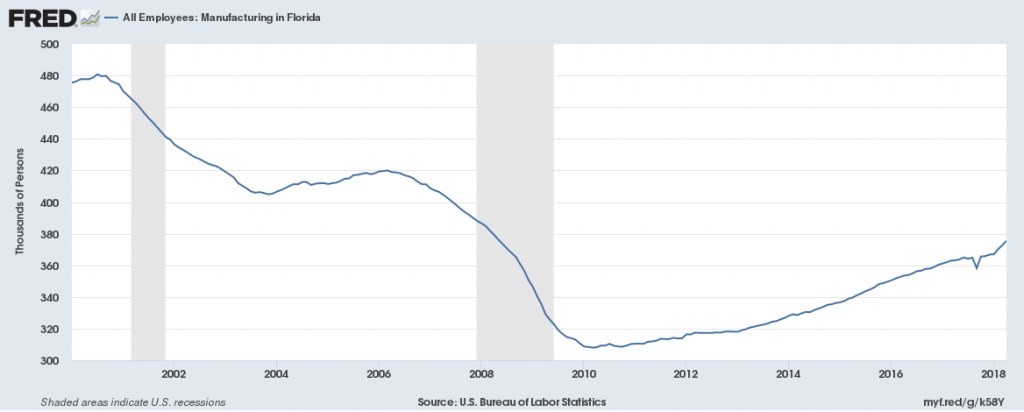
There were 272,000 jobs in the Transportation and Warehousing sector in 2018, 70,000 jobs above its 2010 low, showing a recovery in this sector. The average wage in Trade, Transportation and Utilities occupations was $22/hr in 2018, up from a 2011 average of $18/hr.
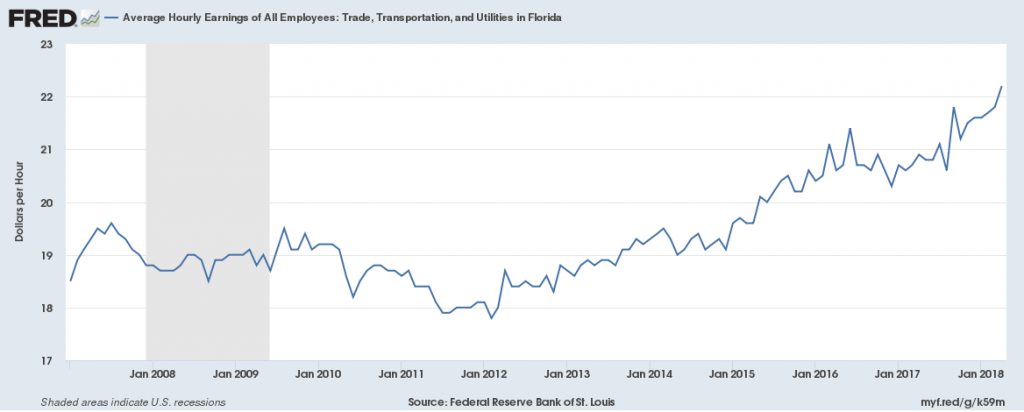
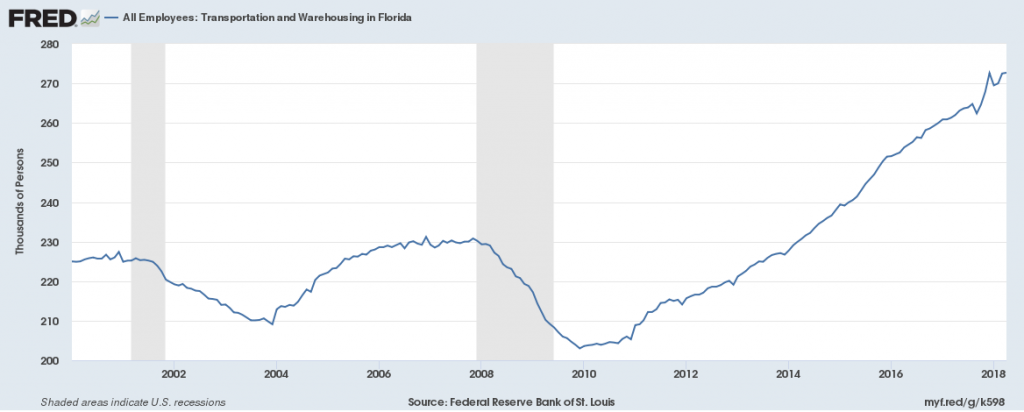
Unemployment
The unemployment rate in 2018 is 4%, down from the prior year’s 4.9% rate. This is slightly above the national average of 3.9% unemployment.
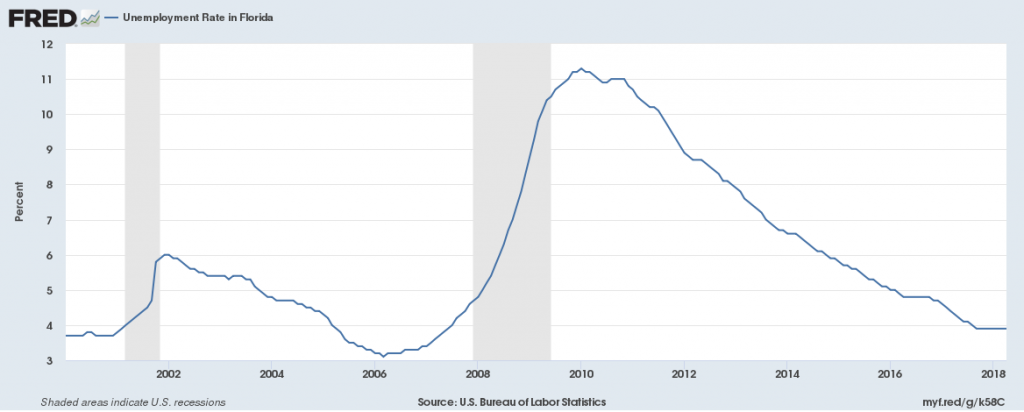
Housing
The House Price Index, a measure of the cost of housing, declined from its 2007 high of 480. It has been increasing since 2012, hitting 440 in 2018, showing a decline from peak housing costs.
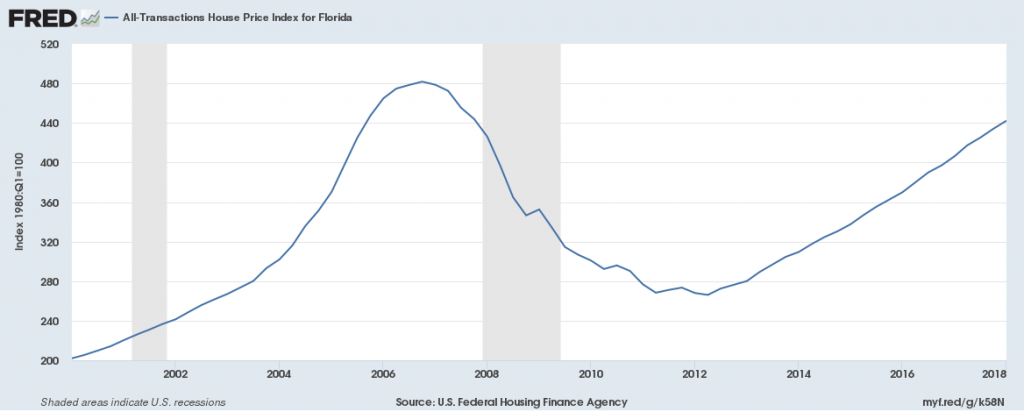
Jacksonville, FL
Gross Domestic Product
Real GDP (a measure of economic growth) has been increasing since 2011 from the most recent low of $55 billion. It has been growing since then and is at the pre-recession peak of $63 billion in 2017.
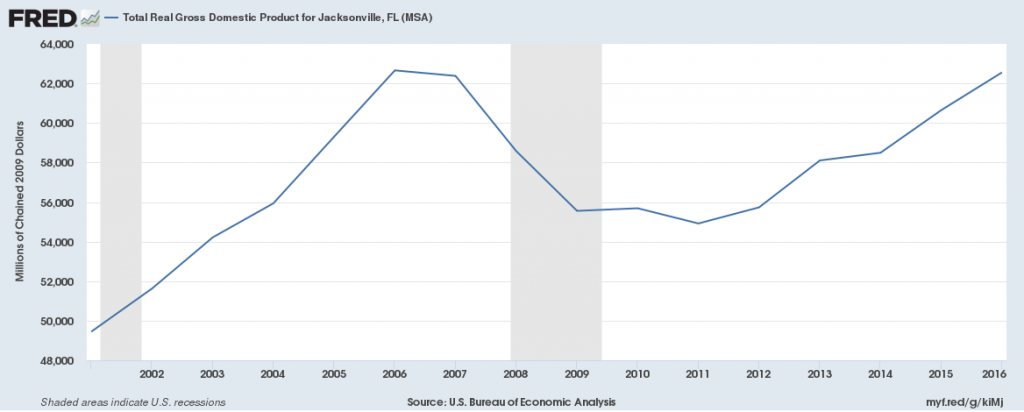
Jobs
Private-sector employers have added 130,000 jobs since 2010, the national low point for private-sector employment. From 2017 to 2018 the private sector has added approximately 20,000 net new jobs, putting it far above the pre-recession high of 555,000 total jobs. Average hourly wages in the private sector have been slowly increasing since 2008, going from $18.50/hr to $27/hr in 2018.
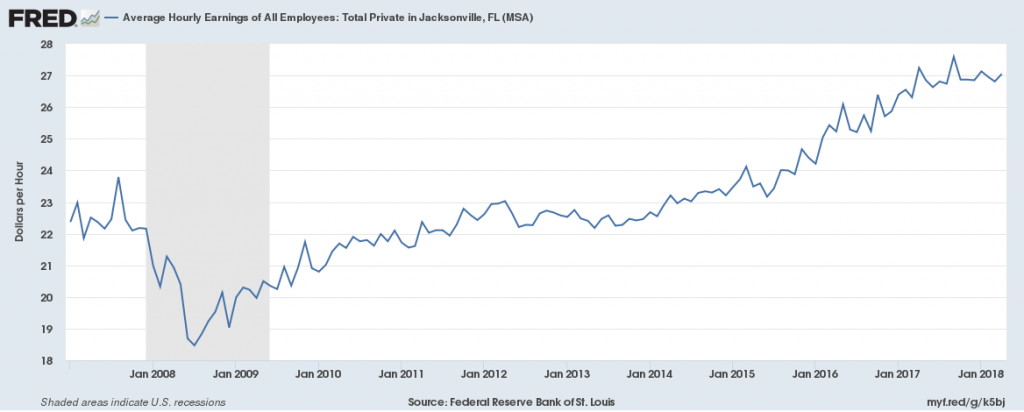
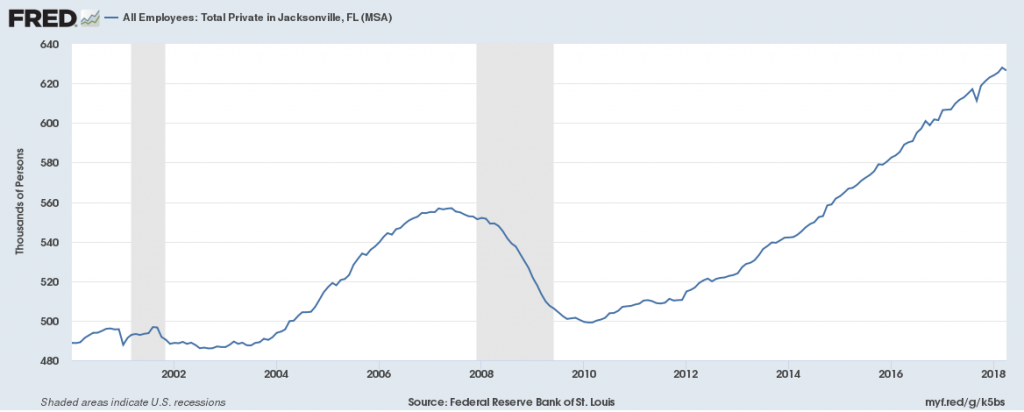
Manufacturing employment has been declining since 2001, especially during the 2008 recession, but has been slightly growing since then. There were 31,500 jobs in this sector in 2018, down from 40,000 in 2001 and below pre-recession levels of 33,000. Average hourly wages of production employees were $17.60/hr in 2018.
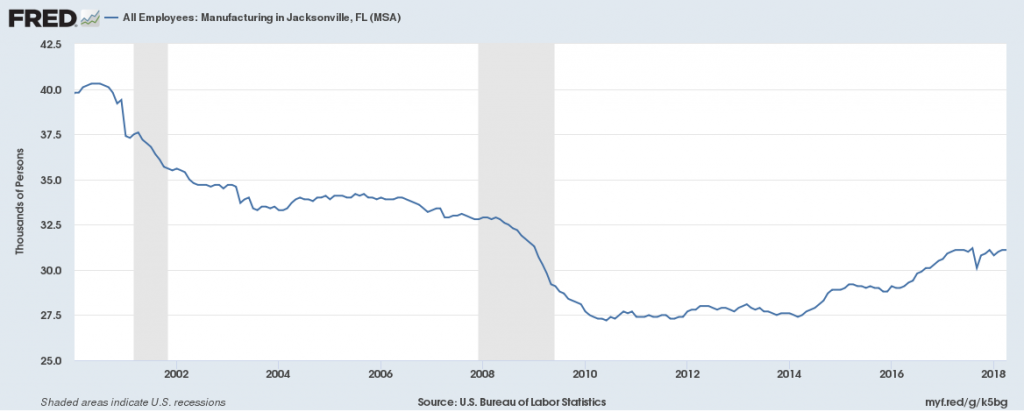
There were 35,500 jobs in the Transportation, Warehousing and Utilities sector in 2018, 70,000 jobs more than the 2010 low, showing a recovery in this sector. The average wage in Transportation and Material Moving occupations was $17.67/hr in 2018.
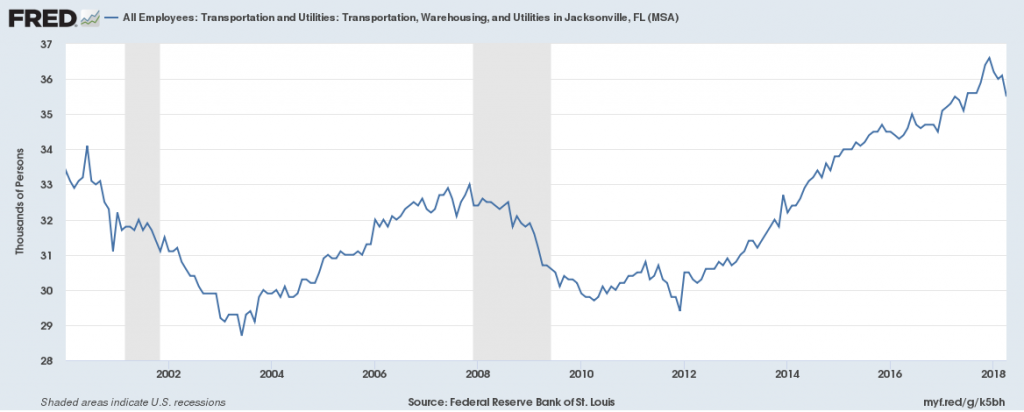
Unemployment
The unemployment rate in 2018 is 3.5%, down from the prior year’s 4.6% rate. This is slightly above the national average of 3.9% unemployment.
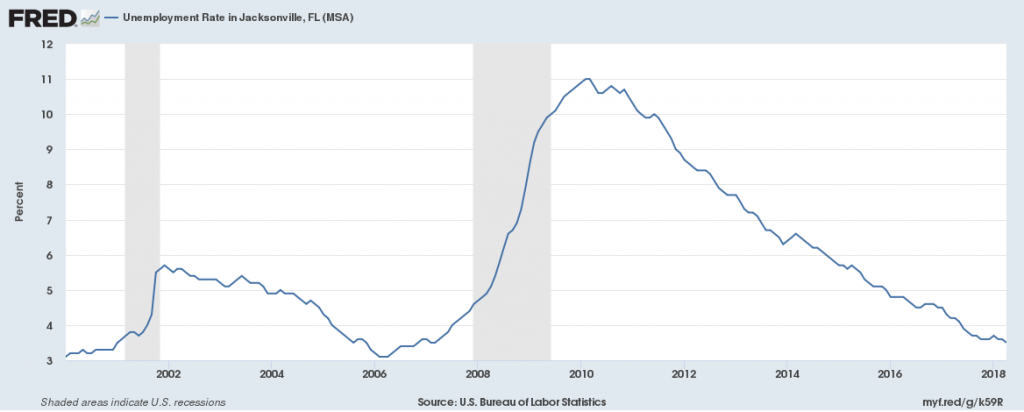
Housing
The House Price Index, a measure of the cost of housing, declined from its 2007 high of 265. It has been increasing since 2012, hitting 245 in 2018, down from peak housing costs but still going up.
